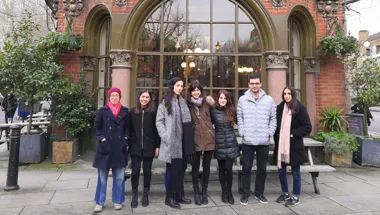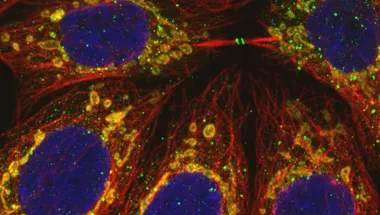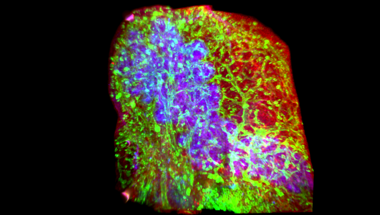
Professor Marika Charalambous
School Academic Lead (Research & Impact)
- Professor of Developmental Physiology
Biography
My research career has focused primarily on the relationship between epigenetic gene dosage control and developmental physiology. Much of my work has utilised imprinted genes in the mouse as experimental models since the epigenetic modulation of these exquisitely dosage-sensitive genes has important consequences for prenatal growth and development in mouse and man.
During my postdoctoral work I investigated the actions of imprinted genes on mouse chromosome 12 in the development of brown adipose tissue (Ferguson-Smith lab, University of Cambridge); described a mouse model with defects in placental development and growth as a result of the loss of function of the imprinted Grb10gene (Ward lab, University of Bath).
In addition, I undertook a training postdoctoral position in metabolic medicine in order to link my interest in prenatal growth and development with lifelong outcomes on metabolic health (Withers Lab, Imperial College London). I was appointed to an Early Careers Fellowship at the Centre for Endocrinology at Queen Mary University of London in early 2013 and became a Senior Lecturer in 2015. I joined the Department of Medical and Molecular Genetics in October 2017.
Research

Developmental Epigenetics Group
The overall scientific theme of the group is to explore how genetic pathways act during early life to modulate metabolic/endocrine health across the life-course.

Lipids and Membranes Research Interest Group
A Lipids and Membranes Research Interest Group

From Developmental Biology to Regenerative Medicine
Understanding organ development and tissue regeneration provides a framework for elucidating disease mechanisms as well as for developing new therapeutics.

King’s Engaged Research Network (KERN)
Find out more about the King’s Engaged Researcher Network

The Francis Crick Institute
King’s is delighted to be a founding academic partner alongside UCL and Imperial College in the Francis Crick Institute, joining the multidisciplinary research expertise from all the Partners together to deliver world-leading biomedical research.
News
Molecular key in transporting important dietary fats to foetus during pregnancy identified
A new mechanism for transporting long-chain polyunsaturated fatty acids, like omega-3s, from the mother to the foetus during pregnancy has been identified in...

European consortium launches toxicology study to benefit newborn health
King’s is one of fourteen partners in a consortium on the European HYPIEND project, to study how exposure to endocrine disrupting chemicals (EDCs) impacts...

Features
5 minutes with Marika Charalambous
Dr Marika Charalambous is a Reader in Developmental Epigenetics and was recently promoted to the position of School Lead for Research & Impact, for the School...

Research

Developmental Epigenetics Group
The overall scientific theme of the group is to explore how genetic pathways act during early life to modulate metabolic/endocrine health across the life-course.

Lipids and Membranes Research Interest Group
A Lipids and Membranes Research Interest Group

From Developmental Biology to Regenerative Medicine
Understanding organ development and tissue regeneration provides a framework for elucidating disease mechanisms as well as for developing new therapeutics.

King’s Engaged Research Network (KERN)
Find out more about the King’s Engaged Researcher Network

The Francis Crick Institute
King’s is delighted to be a founding academic partner alongside UCL and Imperial College in the Francis Crick Institute, joining the multidisciplinary research expertise from all the Partners together to deliver world-leading biomedical research.
News
Molecular key in transporting important dietary fats to foetus during pregnancy identified
A new mechanism for transporting long-chain polyunsaturated fatty acids, like omega-3s, from the mother to the foetus during pregnancy has been identified in...

European consortium launches toxicology study to benefit newborn health
King’s is one of fourteen partners in a consortium on the European HYPIEND project, to study how exposure to endocrine disrupting chemicals (EDCs) impacts...

Features
5 minutes with Marika Charalambous
Dr Marika Charalambous is a Reader in Developmental Epigenetics and was recently promoted to the position of School Lead for Research & Impact, for the School...

